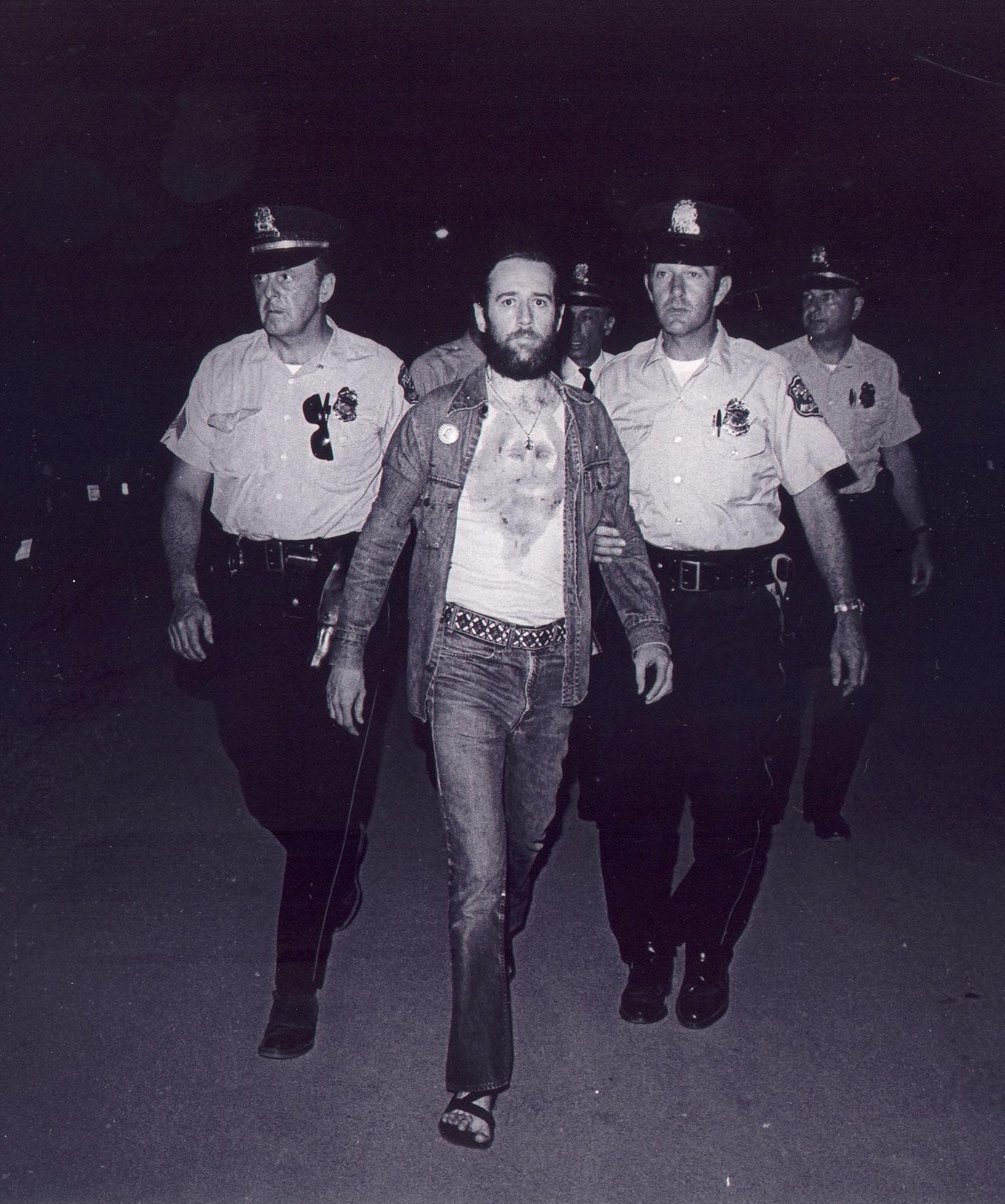WATCH YOUR RIGHTS ARE AN ILLUSION – GEORGE CARLIN


The principle that human beings possess naturally endowed universal rights is the basis of the American form of government and inspiration for democratic movements throughout the world. Rights are considered the guardian principles of human dignity and justice. Yet, as precious as they are, “rights” can no longer protect us against the environmental, political, and economic degradation engendered by today’s global system.\

George Carlin (May 12, 1937 – June 22, 2008) was an American stand-up comedian, actor, author, and social critic. He was known for his black comedy and reflections on politics, the English language, psychology, religion, and various taboo subjects. Widely regarded as one of the most important and influential stand-up comics of all time, Carlin was dubbed to be “the dean of counterculture comedians”.
We are witnessing among many nations an erosion of rights historically regarded as inalienable, the United States being one of the more disturbing examples. Rights drove our Revolution, shaped the Constitution, and inscribed our national character. We think of ourselves as “free” even when our government encroaches on our rights step by insidious step. We even claim to be exporting “rights” to other nations when we overthrow their governments and bomb their cities.
Transforming innate, inalienable, universal rights into political and economic realities has always been a tricky proposition. Yet for several centuries rights have provided the foundation for every struggle for better working and living conditions. The idea has been a powerful force for human liberation. But there’s something wrong with it.
Why do rights provide such a fragile bulwark against tyranny? Why so easily corroded by the suited or uniformed politicized thugs who so often wield power? Most movements are not about rights, per se, but are aimed at intolerable conditions; rights are drawn upon to justify demands, to answer the underlying challenge: “Why shouldn’t you be deported? Why makes you expect decent schools or decent wages?” “Well, it’s our right.” Rights are more of an abstraction than the conditions they guarantee, which is why they are often exchanged for promises of law and order or tax cuts – as long as we’re comfortable, we take rights for granted. And like the frog in the gradually warming pot, rights can erode without notice until we’re cooked.
Wealth has not always been horded, because wealth can do more than expand one’s status and possessions. For instance, in gift-exchange societies, exemplified by the potlatches of northwest American Indians, a lavish gift from one chief or tribe to another imposed strict obligations, including passing on a gift of equal or greater value to another group. This kept wealth circulating and built a network of mutual obligations and alliances. Circulation and connection, not ownership and isolation, were the principles governing wealth.
This is not to idealize such societies, which were quite capable of pursuing war and other nasty behaviors. It does, though, point to alternative ways of viewing wealth, power, resources, and status, which frequently contain more power as gifts that create a mutuality of interests as opposed to conferring authority on those who “own” it. Viewing wealth from other perspectives helps us instill our approach to rights, ownership, debt, social safety nets, movement of people across borders, justice, and the environment, inspired by a new sense of social space and economic dynamics. (For instance, restorative rather than retributive justice). Such shifts in world view cannot simply be suggested or imposed, but they can provide the basis for behaviors and programs that, if successful, change our relationship to wealth and all that it affects.
Change has to occur. Donald Trump epitomizes both our national enslavement to the illusions of wealth and the narcissistic disorder that arises from it. He is the logical outcome of a society wallowing in its own luxuries, both real and imagined. He is obsessed with the accoutrements of selfhood – the gold faucets; the endless litany of self-praise; the gaudy houses; the feverish, boastful womanizing; the name as brand; the glee in the power to fire people and, recently, to fire nuclear weapons. He is beyond being one of “the hollow men” described by T.S. Eliot’s poem. He is the hollow. He is our hollow, the hollowness at the heart of a nation that has come to view freedom and identity as marketable items till we ourselves become the ultimate commodity, the ultimate “thing”, our identities reduced, packaged, and bought and sold in a digitized global marketplace.
What can replace this hollow shell? Circulating our gifts – our skills, insights, strength, wealth—may help create more sustaining and fulfilling conditions in which all of us can thrive. For instance, in foreign affairs, we might shift diplomacy from the Metternich/Dulles/Kissinger model and its neo-liberal offshoots for an approach based on a win/win commitment. Too risky? We do have a military, which can play a legitimate role in discouraging and repulsing nations that mistake mutuality for weakness. “Surgical” strikes and mop-up squads need not be an army’s primary mode of operation.
Does that sound too “soft”? No softer than the concept of rights that inspired the founding of this nation and world-wide aspirations to democracy. Such an approach requires more toughness than the posturings of war. Accepting that one’s fate is entangled with that of the world’s other inhabitants can be more challenging and “harder” (for those worried about “hardness”), than smashing other communities via a pathetic orgy of murderous fire and steel on which we’ve squandered all our wealth and the national credibility the U.S. once so confidently asserted.
